Things Nice People Just Don’t Do
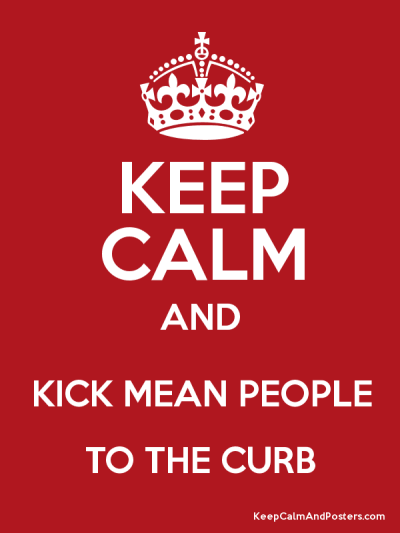 Mamacita says: And lo, there are things nice, smart, decent people just simply do not do, and here are some of them. No, this post isn’t about murder or assault, but it is about petty things that turn you from a nice person into a creep. If you recognize yourself, change your ways lest you burn in the fiery depths of Hell, which is where people who are not nice belong anyway. Bring it on.
Mamacita says: And lo, there are things nice, smart, decent people just simply do not do, and here are some of them. No, this post isn’t about murder or assault, but it is about petty things that turn you from a nice person into a creep. If you recognize yourself, change your ways lest you burn in the fiery depths of Hell, which is where people who are not nice belong anyway. Bring it on.
1. Nice people don’t cut lines. No. Nice young people, nice middle-aged people, nice old people, people on foot, people in cars. . . . nice people don’t cut lines. This includes people who save a place in line for a line-cutting friend. If you are a line-cutter, you are not a nice person.
2. Nice people don’t get in the wrong lines. If the sign says “20 items or less,” grammatically incorrect though it may be, nice people get in the regular line if there are 21 items in their cart. If you get in the 20 items line with a mounded cartful, or even just 21 items, you are not a nice person.
3. Nice people return carts to the corral. Period. If you leave your cart in random spots in the parking lot, you are not a nice person.
4. When nice people decide not to buy an item after all, they return said item to its proper shelf. Nice people do not place items on the nearest, handiest shelf. No. Assholian people do that. You’re the one who moved the item, so you’re the one who needs to put it back. IN THE RIGHT PLACE. If you put unwanted items on the nearest shelf instead of returning them to their proper place, you are not a nice person. The store cannot sell the frozen pizza you decided you didn’t want and placed on the bread shelf. The store cannot sell the gallon of milk you decided you didn’t want and placed in the shoe department. You are responsible for ruining those items. Thief.
5. Nice people do not make noise in the movie theater. If you talk, let your phone ring, eat constantly and let your food make sounds, get up and down a lot, and don’t insist that your children behave in the theater, you are not a nice person.
6. Nice people don’t eat and drink in a store. Such people tend to leave litter and stains on merchandise. If you can’t wait until you step out of the store to dive into your unpaid-for cheese curls and sodas, but must inhale them IMMEDIATELY as you push your cart down the aisles, you are not a nice person. P.S. Until you pay for it, it’s not actually yours. Thief.
7. Nice people don’t go through a restaurant’s drive-through line if they’ve got a special order of some kind. For special orders, nice people park and go inside. The drive-through is for people who are in a hurry – people who order a #5 and a #8, both with Cokes. If you need a #9 with no ketchup or pickles and some french fries with no salt, GO INSIDE. Nice people don’t hold up lines.
8. Nice people don’t text and drive. I can even, quite properly, rephrase this one by saying that smart people don’t text and drive. Ever. Smart people and nice people do not text and drive. Period.
9. Nice people don’t smoke where there are other people, and especially if there are children. Uncle Fred, who’s smoked three packs a day for 38 years and is feeling just fine, thanks, who lights up at the family reunion right in front of all the nieces and nephews and Grandmother who’s just out of the hospital, is a jerk. A big, fat, jerk. Nice people don’t do that. Nice people ask permission even to go outside and smoke at your house. Yes, I said permission. I don’t want my yard covered with butts. Go home and smoke. Stink up your own place. Nice people who never dream of doing that.
10. It goes without saying that nice people don’t pick their noses or fart/burp on purpose or scratch where the sun don’t shine when they’re with other people. These things are done in private, never in public. Chainsmoking Uncle Fred (see above) who sees nothing amiss in lighting up will probably be guilty of these offenses, too. Uncle Fred has no class. He’ll probably offer your toddler a sip of his beer. Nice people do not do these things.
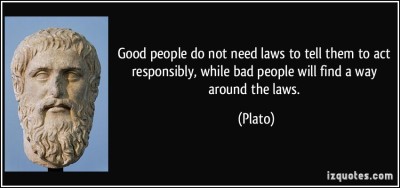 It’s called “manners,” friends. People with good manners have “class.” I realize that those who don’t understand why the above 10 things are wrong won’t understand that they have no manners or class, either, but that doesn’t mean they should have their own reality show and make money whenever some equally classless person thinks it’s cool to watch a pack of hormonal, farting, nosepicking hilljacks dressed in camouflage eat roadkill possum and dance with pigs. Not that there’s all that much difference between the pig and the child. . . .
It’s called “manners,” friends. People with good manners have “class.” I realize that those who don’t understand why the above 10 things are wrong won’t understand that they have no manners or class, either, but that doesn’t mean they should have their own reality show and make money whenever some equally classless person thinks it’s cool to watch a pack of hormonal, farting, nosepicking hilljacks dressed in camouflage eat roadkill possum and dance with pigs. Not that there’s all that much difference between the pig and the child. . . .
Now. Let’s all get out there and do our best to act properly in public. The universe thanks you.
Also? I am not making fun of the above offenders. I am reacting in horror. There’s really nothing funny about them.
If you have never worked a service sector job, you probably won’t understand. Then again, if you’ve never worked in the service sector, I won’t understand you, either. Talk about different worlds. . . .

An Exception Must Be Made for My Kid, and Hurry It Up

Mamacita says: Everybody on the basketball team is trying really, really hard. Some of them are displaying amazing skills, while others aren’t quite up to the same level of competence. Some of them can hit almost every basket; others on the team will hit maybe one basket out of ten or more attempts. Some haven’t made a basket yet. One player’s specialty seems to be fumbles and fouls. A couple of players can’t stop double-dribbling. Even though most of the players know what they’re doing and are really putting a lot of effort into the game, they are constantly thwarted by those few players who either can’t do it, or who could obviously do better but don’t care about the outcome. All of the players, however high or low their skills may be, are necessary because, according to the rules, the team MUST have a certain number of players in order to be a team at all. The winner will be the team as a whole, not the individual players according to their personal skills and attitudes. Those players who can play well will always be handicapped by the players who can’t/won’t, and those players who can’t/won’t will always be necessary to make up the numbers. And sometimes there is a miracle, and a player who hasn’t done anything all season will score the winning point with an amazing mid-court throw. Good coaches never stop trying.
The score is determined by the number of points made, and the points are made by throwing the ball THROUGH the basket. Whichever team can throw 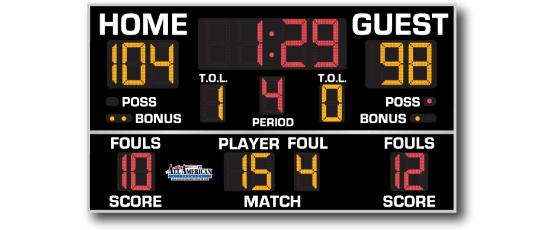 the ball through the basket the most, within a certain time frame, wins.
the ball through the basket the most, within a certain time frame, wins.
I don’t know all that much about sports, but I do know this: the rules are set and only a fool would ask for exceptions. It just isn’t done. In sports, the score is what it is, and the score is determined by how many points a team makes, and the team’s points are made by individuals. Each individual either makes a point, or he doesn’t. There is, as Yoda says, no ‘try.’ The team’s score is calculated by adding up each individual player’s contribution. These stats are kept, meticulously, by a scorekeeper.
In the middle of a game, someone suddenly stands up and runs down the bleachers, screaming. This person marches up to the scorekeeper and DEMANDS that a certain player receive a point even though his ball did not go through the basket.
 “It’s not his fault that his skills are not as well developed as the players who made most of the points! All players should be given credit for SOME points, even if they didn’t actually earn them! It’s bad for their self-esteem to have a zero in the stats; don’t give them full credit, of course, but they should be given half, at least. It’s not their fault that they can’t perform as well as the kids who actually got the ball through the basket. Every member of the team deserves to get a point for each attempted basket, whether the ball went through or not. The scorekeeper has the power to give points; why shouldn’t the scorekeeper be the one who actually receives the credit or the blame for a team’s total points? It would be so easy to award ALL the individuals who make up the team; how could the scorekeeper be so cruel as to deny any player a point when the player tried! He TRIED! Isn’t that worth at least one point? Shame on the scorekeeper! Shame! It’s not fair that only the players with better skills get all the points! Maybe it WAS the kids who listened and tried and practiced above and beyond the coach’s directives who really won the game for the team, but it’s not fair for them to get all the awards when the kids who didn’t practice, didn’t obey the coach, and just plain didn’t have the ability were, um, THERE, too! The players who TRY should get a point for each attempt.”
“It’s not his fault that his skills are not as well developed as the players who made most of the points! All players should be given credit for SOME points, even if they didn’t actually earn them! It’s bad for their self-esteem to have a zero in the stats; don’t give them full credit, of course, but they should be given half, at least. It’s not their fault that they can’t perform as well as the kids who actually got the ball through the basket. Every member of the team deserves to get a point for each attempted basket, whether the ball went through or not. The scorekeeper has the power to give points; why shouldn’t the scorekeeper be the one who actually receives the credit or the blame for a team’s total points? It would be so easy to award ALL the individuals who make up the team; how could the scorekeeper be so cruel as to deny any player a point when the player tried! He TRIED! Isn’t that worth at least one point? Shame on the scorekeeper! Shame! It’s not fair that only the players with better skills get all the points! Maybe it WAS the kids who listened and tried and practiced above and beyond the coach’s directives who really won the game for the team, but it’s not fair for them to get all the awards when the kids who didn’t practice, didn’t obey the coach, and just plain didn’t have the ability were, um, THERE, too! The players who TRY should get a point for each attempt.”
Now, imagine that this is your mom making this scene. Could anything ever even approach the humiliation of that moment? What would she be THINKING? Doesn’t she 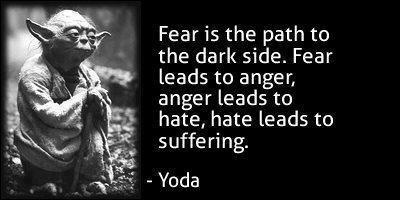 understand that you only get points when the ball goes THROUGH the hoop? Didn’t she see that none of your throws went through the hoop? Why would she even imagine that you should get points when you didn’t make any? Why, in the sports stats, a kid who didn’t make a single basket might still be credited for ten or more points per game! A player who got the ball through the hoop several times wouldn’t have as many stat points as the kid who got none! How ridiculous would that be?
understand that you only get points when the ball goes THROUGH the hoop? Didn’t she see that none of your throws went through the hoop? Why would she even imagine that you should get points when you didn’t make any? Why, in the sports stats, a kid who didn’t make a single basket might still be credited for ten or more points per game! A player who got the ball through the hoop several times wouldn’t have as many stat points as the kid who got none! How ridiculous would that be?
Can any of you imagine yourselves making this scene?
Of course not. We all know better than to demand exceptions, and points-not-earned, when it comes to athletics. How absurd.
So, then, why are some of us so ready to march to school and demand at least a FEW points for our child, when the child didn’t do anything to earn any points?
Some schools have a rule that even a child who earns a zero will still get sixty points, because to give a child a zero would be bad for the kid’s self esteem. In some districts, 60% is a D-, and with a D- a student will be promoted, legitimately, to the next grade.
In other words, a kid who doesn’t lift a finger all year, and who, if the stats were kept 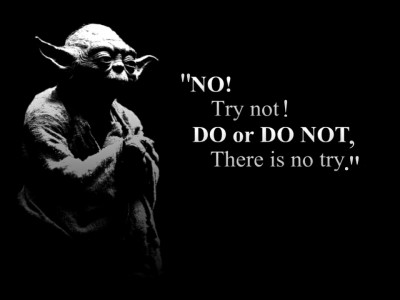 accurately, would have a string of zeros after his name because he didn’t earn any points, ends up with more points recorded than a hardworking kid who just isn’t very smart who EARNED, maybe a 55% or less, and who won’t be promoted because he hasn’t earned enough points.
accurately, would have a string of zeros after his name because he didn’t earn any points, ends up with more points recorded than a hardworking kid who just isn’t very smart who EARNED, maybe a 55% or less, and who won’t be promoted because he hasn’t earned enough points.
Well, in today’s society, both students would probably be promoted no matter how few points they earned over the course of the school year. Don’t get me started on that one.
My point is, to get points, one must earn points, and to earn points, one must actually demonstrate competence in something, whether it be getting a ball through a hoop, or spelling “ball” and “hoop” correctly, or counting how many tries it took to get the ball through the hoop, and if there is no competence demonstrated, then there are going to be a lot of zeros after this kid’s name, unless the Self Esteem Police have dictated that a kid who earned nothing has in fact earned a lot more than a kid who earned something.
And a parent who comes to school demanding that his/her child receive points for NOT doing the work is no different from the parent who comes to the gym demanding that his/her child receive points for NOT getting the ball through the hoop. Not all kids have the same physical abilities, and not all kids have the same mental abilities. Free points for no points earned is ridiculous, whether those unearned points be from the football field or gym, or from the classroom. No earn = no deserve. We all understand that not every child is going to succeed on any kind of athletic field – only the ones who are able get points there. Why are there people who insist that, even though we understand that not every child is going to succeed in any kind of academic field, that every child get points anyway?
 I call foul on this one.
I call foul on this one.
“. . . a little more knowledge lights our way. . . .”
Yoda rocks
.

Community School Supplies? Absolutely Not!
 Mamacita says: And so, here we are with school about to start up again – hey, if you live in southern Indiana, many of our schools started up last week!
Mamacita says: And so, here we are with school about to start up again – hey, if you live in southern Indiana, many of our schools started up last week!
This is the time of year I like to re-run my post about community school supplies and how they are of the devil. Yes. Satan himself thought up this concept. Here we go:
School will be starting soon – or maybe it already has – for most kids, and each year at about this time I like to re-run this post about an issue that really, really makes me want to kill somebody and put his/her head on a post in the WalMart parking lot bothers me a lot: community supplies in the classroom.
When I was a little kid, one of my favorite days of the year (besides Christmas Day) was the day the newspaper posted the list of required school supplies, and Mom took us to Crowder’s Drug Store to buy them.
I loved looking at that list, and Mom always let me be the one who got to put the little checkmark beside the items as we put them in our basket.
Prang paints. Check. Paint pan. Check. Rectangular eraser. Check. Blunt-tipped scissors. Check. Etc. Check.
On the first day of school, I loved bringing my beautiful shiny school supplies into my new classroom, and I loved arranging them all inside my desk. I loved to look inside my desk and just savor the sight: all those cool things I could draw with and paint with and write with. . . and they were mine, all mine, and nobody else could touch my things unless I gave them permission. Me. I was the boss of my desk things. I took such pride in my school supplies, and mine were usually still looking pretty good even at the end of the year. They were mine, you see, and I had a vested interest in them; therefore, I took pains to take care of them. Back then, down in lower elementary, the school supplied only the special fat pencils and the weird orange pens.
When my own children were little, I looked forward to Buying School Supplies Day with just as much delight as I did when I was a little kid. New binders. New pencils. And the most fun of all, choosing the new lunchbox. My own children loved the new school supplies, too. I think it is of vital importance that all children have their own school supplies; it is the beginning of them learning the pride of possession and the importance of caring for one’s own things in order to keep them for any length of time.
It’s not like that in many schools nowadays. I learned, to my horror and dismay, that many teachers do not allow their students to have their own supplies now; the little sack of a child’s very own things is taken from the child on that first day, and dumped into the community pot for all the kids to dip into and out of. There are no “my scissors,” there is only a rack or box of scissors for everyone. “Look, there are the scissors I picked out at Walmart; my name is engraved on them; I wish I could use them but they’re so cool, other  kids grab them first every time. . . .” There are no more personalized pencils or a child’s favorite cartoon character pencils to use and handle carefully; there is only a big bucket of chewed-on germ-covered pencils grabbed at and used by everybody in the room.
kids grab them first every time. . . .” There are no more personalized pencils or a child’s favorite cartoon character pencils to use and handle carefully; there is only a big bucket of chewed-on germ-covered pencils grabbed at and used by everybody in the room.
And since nothing belongs to anybody, who cares about taking good care of them?
I fully understand that the community pot of supplies is much easier for a teacher to control. I wasn’t, however, aware of the fact that teacher convenience was any kind of issue here. I taught in the public schools for 26 years and I never expected things to happen for the convenience of me; that wasn’t why I was there.
I fully understand, too, that some children’s little sack of supplies won’t be as individualized or cool as another child’s sack of supplies. I know for a sad fact that some children will never have their own little sack of supplies, at least, not one brought from home. That’s life; that should not even be an issue. Some children’s shoes aren’t as cool, either; do we throw shoes in a box and let the kids take pot luck with those, too? I understand that in some classrooms, a child’s packed lunch is sometimes taken apart and certain things confiscated or distributed, lest some child have a treat that another child doesn’t have.* When my kids were in grade school, my mother would occasionally stop by at lunch time with a Happy Meal for them – and for me! – and I was told this had to stop because other children didn’t have that option. Well, you know what, my children were often envious of another child’s dress or shoes or lunch or cool pen, but I would never have tried to ensure that other children would never be able to have anything my own kids couldn’t have. Good grief. Such insanity!
Teachers should keep an eye out for those kids who don’t have supplies, and the school should supply them, but after that point, they become the child’s own and he/she should be required to take good care of them, just as any and every kid should be required to take care of his/her things. Children who take good care of their things should not be required to supply children who had their own things but didn’t take care of them properly. As a little child, I was horrified at the thought, and as a parent, I’m even more horrified. It was like a reward for being negligent! Every year, I donate tons of school supplies to my neighbor’s children’s school; I’m delighted to do this, and I recommend this to all of you. Perhaps, if schools have enough donated supplies, our little children will be allowed to keep their very own supplies once again.
I think most people would be happy to donate a full set of school supplies for children whose families couldn’t afford them. I would, and I do. But I fully expect my donated school supply set to be given to an individual child and become his/her very, very own, carefully tended, appreciated, and lovingly used school supplies. If each parent, or each parent who was able, donated a complete set or two each year, I’m betting the school itself wouldn’t have as big a burden in supplying freebies to needy kids. But community bins containing chewed-on, drooled-on, broken-on-purpose junk for everybody to dip into? Absolutely not. No. NO.
A few community bins for the forgetful or temporary lack might be a good thing, but the option to keep one’s very own stuff to oneself should be upheld, too.
When I was a child, I had very little that was my very own. Everything that was supposedly mine was expected to be shared with anybody else in the house that wanted it at any given moment. But at school? In my desk, in my very own desk, were things that were inviolably mine, and I can not even describe for you the sensations that went through me when I looked at those things that my teacher had ruled were mine and only mine. Kids who violated another kid’s desk were quite properly labeled ‘thieves,’ and they soon learned what happens when a person put his hands on property that was not rightfully theirs.
Things are very different now. I hate it. The rare teacher who takes the time and trouble to allow his/her students to have their own things is often castigated by the other teachers who are taking the easy ‘community property’ route – or being forced to by an idiot administrator. Kids are sharing more than gluesticks and pencils, too; I don’t even want to THINK about the incredible pot-o- germs they’re dipping into daily. Gross. My child using a pencil some other child gnawed? I guess so, because teachers who don’t want to bother with a child’s private property are forcing the kids to dump it all in the pot for everybody to use. “Don’t be selfish.” “Share.” Well, you know what? I don’t like that kind of forced sharing. I had to share everything, EVERYTHING, and that little pile of school supplies was my only private stash of anything. I do not feel it was selfish, or is selfish, to want to keep school supplies that were carefully chosen, to oneself. Children who have their own things learn to respect the property of other children. Children with no concept of personal property tend to view the world as a buffet of free, unearned delights awaiting their grasping, grabbing hands. Both tend to grow into adults with the same concepts learned as children.
germs they’re dipping into daily. Gross. My child using a pencil some other child gnawed? I guess so, because teachers who don’t want to bother with a child’s private property are forcing the kids to dump it all in the pot for everybody to use. “Don’t be selfish.” “Share.” Well, you know what? I don’t like that kind of forced sharing. I had to share everything, EVERYTHING, and that little pile of school supplies was my only private stash of anything. I do not feel it was selfish, or is selfish, to want to keep school supplies that were carefully chosen, to oneself. Children who have their own things learn to respect the property of other children. Children with no concept of personal property tend to view the world as a buffet of free, unearned delights awaiting their grasping, grabbing hands. Both tend to grow into adults with the same concepts learned as children.
This business of everything being community property in the classroom causes problems in the upper levels, too. Junior high, high school, even college students, are expecting things to be available for them without any effort on their part. Upper level students come to class without pencils, erasers, paper, etc, because they’re used to having those things always available in some community bin somewhere in the room. They have never been required, or allowed, to maintain their own things, and now they don’t know how to. The stuff was always just THERE, for a student to help himself to. And now that they are supposed to maintain their own, they really don’t know how. Plus, why should they? HEY, I need a pencil, Teach, gimme one. No, not that one, that other one there. Indeed,
Well, it worked down in the lower grades, with community property. You just get up and 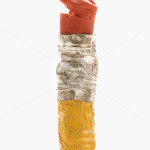 help yourself; everything in this room is for me, ain’t it? Gimme that pretty one, I want it.
help yourself; everything in this room is for me, ain’t it? Gimme that pretty one, I want it.
But guess what, kids, it’s evil enough down in the lower grades, but it doesn’t, or shouldn’t, work at all when you hit the upper grades. I’d like to have a penny for every hand that tried to help itself to things on my desk, because, well, they were there. I’ve even had students who opened my desk drawers, looking for supplies. Not poor kids who didn’t have any; just a kid who didn’t bring any and expected everything to be supplied because, well, down in the elementary, everything WAS. I have had COLLEGE STUDENTS look around the room expectantly, looking for the bucket of pencils and pile of paper.
Oh good grief, teachers or principals or boards or whoever has the authority, let the little kids keep their own things, put their names on them, and learn how to be responsible for them. Secondary teachers and future employers will greatly appreciate it.
I know that in some cases, it’s not the individual teacher’s decision – it’s a corporate mandate. This is even more evil. It’s like a national plot to make future generations needy and dependent and reliant on others to fulfill all their needs. And don’t we already have more than enough of THOSE people?
Let me sum up, as Inigo Montoya would say: Community school supplies are wrong on  every possible level. Period.
every possible level. Period.
Parents, if I were you – and I am one of you – I’d buy the required community bin stuff at the Dollar Tree instead of the overpriced educational supplies store in the strip mall that the school supplies newsletter instructs you to patronize. Send them to school and let them be dumped into the bins for mass consumption and germ sharing. Then you and your children go shopping and pick out the good stuff. If your school informs you that it’s against their policy for any of the children to have their own supplies, you inform the school that you don’t give a rat’s ass about such a policy; you did your chipping in and now you’re seeing to it that your children have their very own stuff and that you expect your children’s very own stuff to harbor no germs except your own children’s germs, which will be considerable, but that’s another topic. What’s more, if your children come home and tell you that their very own supplies are not being respected and are in fact being accessed by others without permission of the owner, please hightail it down to the school and raise bloody hell.
If I am privileged to supply individual children with supplies, however, I will buy them the best – personalized, if possible. No child should go without, and each child deserves the good stuff to be kept in his/her own desk to be used by only him/her.
But stuff I know is going into a bin? Dollar Tree. Bite me.
I am happy to see to it that all of the children in the room have adequate supplies, but I 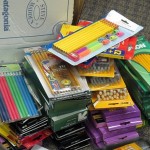 can’t stress strongly enough that each child needs and deserves to have his/her very own personal private stash of supplies that nobody else can ever touch.
can’t stress strongly enough that each child needs and deserves to have his/her very own personal private stash of supplies that nobody else can ever touch.
Do I seem overly obsessed about this topic? Darn right. The very concept of community school supplies makes me so furious I become incoherent. Which is apparently happening right now so. . . .






